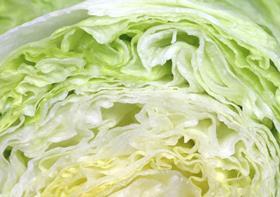
The US Food and Drug Administration (FDA) has announced that food processors will now be allowed to irradiate fresh spinach and iceberg lettuce in order to eliminate E.coli and other pathogens.
The regulation, which came into affect on 22 August, had already been approved for other food products including fresh fruit and vegetables, red meat and poultry, particularly to ward off insects.
The FDA said in a statement that irradiation would not only help control harmful bacteria, but would also improve the shelf-life of leafy greens.
FDA spokesman Sebastian Cianci said that the new ruling would allow produce to be treated with higher dosages than was previously allowed, while still not significantly affecting the nutritional content.
Industry experts have, however, aired their fears that consumers would be unwilling to pay premium prices for irradiated produce.
'The reason I'm not optimistic is that commercial irradiation in ground beef added a cost of about US$0.05 per lb, and it failed because consumers aren't willing to pay a premium for a safe product,' Jim Gorny of the University of California's Postharvest Technology Research and Information centre told The Packer. 'They expect it to be safe. They ask, 'If I'm not buying irradiated meat, it's not safe?''
Alternatively, some are focusing on the safety rather than commercial aspect of the decision.
“It is yet to be seen if it is practically applicable,” Joe Pezzini, chairman of the California Leafy Green Products Handler Marketing Agreement told the publication. “We have a robust preventative programme through LGMA, which will continue. As we've said all along, as science and technology advances, we will look at all those measures to see how they can be incorporated into ensuring food safety.



